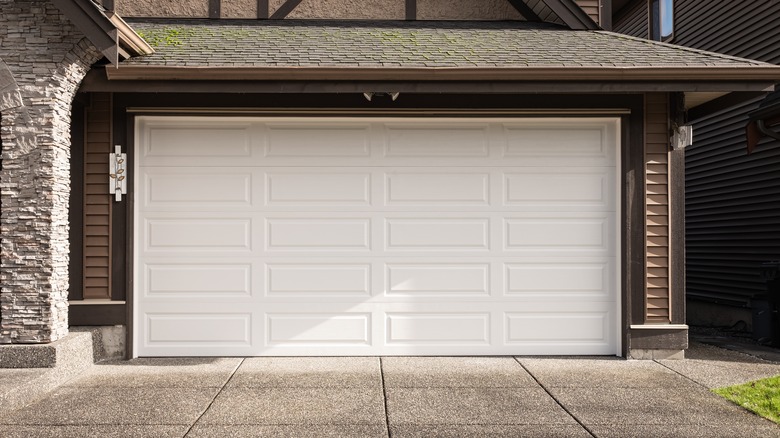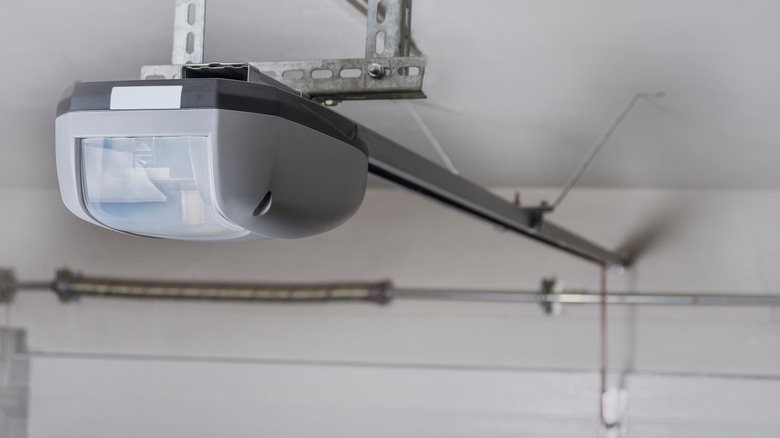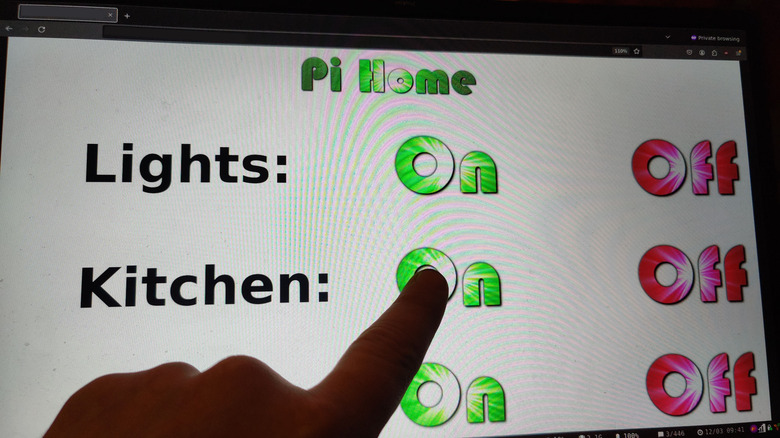5 Useful Raspberry Pi Projects For Your Garage
Unless you're some sort of mechanic or tinkerer, you probably don't spend a lot of time in your garage on a given day. What's there to even do in there besides park your car and go inside your house? But your garage is another room in your house like any other, and even if you don't spend a lot of time in it, it still serves a vital purpose for your day-to-day life. If you've got the drive and mechanical chops, you could install all kinds of nifty gadgets to make your garage even more convenient.
While you could install standalone devices or even build them from scratch if you know how, if you're looking for a good middle ground between affordability and tinkering potential, you should consider a few garage Raspberry Pi projects, where they can be just as useful as Raspberry Pi projects for your bedroom.
Consider it an investment of effort so you can spend even less time in your garage after you get home from work every day.
Garage door opener
The first, and perhaps most obvious thing you could do with a Raspberry Pi in your garage is open and close the door. While motorized garage door systems are commonplace, they can be a bit expensive to have professionally installed, not to mention the costs associated with maintenance or replacement if they break. Rather than spending over $100 on an existing door motor repair, you can build your own wi-fi connected opener from a Raspberry Pi for around half that.
This nifty system works the same as a regular garage door opener, tying the physical door to an electric motor-driven chain to pull it open. The difference is that, rather than with a physical button or remote, this opener is controlled via a virtual button hosted on a dedicated web server. Just access the server from any local internet browser, whether on your phone or computer, smack that button, and up the door goes. Not only is this another great Raspberry Pi project that won't break the bank, you can potentially save on motor maintenance, and you won't need to have a mount for the button installed on your garage wall either.
Garage door monitor
Even if you already have a garage door opener you're happy with — Raspberry Pi-powered or otherwise — there's still plenty of room for improvement. For one thing, no matter how smart your garage door is, there's always that annoying risk that you accidentally leave it open all night, or closed when a family member needs to get in. There are few things as frustrating as being snuggled up in bed at night, only to suddenly forget whether or not you left the door open and having to plod down to the garage to check.
Utilizing a Raspberry Pi-based garage door monitor, you can receive immediate updates to your phone when the garage door has been left open for more than a few minutes. With a reed switch connected to the Mattermost software platform, you can schedule automatic notifications to be sent to you if the door has been left open, as well as manually check its current state on your device.
Parking sensor
Pulling your car into a garage is kind of like trying to see through a Magic Eye painting. The back wall always seems either closer or farther than it actually is, and unless you have a tennis ball hanging from the ceiling, there's an ever-present risk you'll accidentally bump into the wall or knock the trash cans over. If you've been having a problem with this, try using a Raspberry Pi gadget to clearly indicate how close you are to the wall.
This Raspberry Pi parking sensor makes use of an ultrasonic distance sensor working in concert with a set of red, yellow, and green LED lights. The sensor is placed at the back of the garage and tracks the distance between it and your car. When your car is more than 25 cm (about 10 inches) away, the light turns green, showing that you have plenty of clearance. As you approach, the light switches to yellow, urging caution, and finally to red when it's time to stop. Not only does this help keep you from bumping the wall, it also helps you to gauge the perfect distance so your car isn't clumsily sticking out of the door.
Smart home controller
Similar to leaving the garage door open, another potential late-night headache you may have to contend with is trying to remember whether or not you turned off the garage lights. Unless your home has a very particular layout, you can't see if the lights are on from another room in the house — which means another irritating worry you have to get up to double-check. While it's not expressly designed for garage lights, this Raspberry Pi smart home controller can fix all of those problems and more.
With this project, you can create a series of easy switches that can be used to control all kinds of devices and fixtures in your home. All of this is managed through a custom user interface, easily accessible through your phone, which can be used to turn your garage lights and appliances on and off from the comfort of your living room chair.
Temperature and humidity sensor
Unless you have enough money to heat your garage throughout the winter and cool it in the summer, it can become a bit of an atmospheric wild west in there while you're not looking. Garages can be full of dank, dark spots, which can foster the growth of problematic substances like mold. A dehumidifier might help, but if you're not sure whether it's actually humid enough in there to necessitate one, try building a Raspberry Pi temperature and humidity sensor.
This isn't one of the easiest Raspberry Pi projects, and it uses a DHT22 digital humidity and temperature sensor, connected to a breadboard, to monitor the atmospheric state of your garage in real time. You can connect to your Pi from other devices on your network, and run a simple command to get round-the-clock updates on just how dank the conditions are in your garage. With this information, you'll know exactly when it's time to bust out the dehumidifier, or just crack a window.




